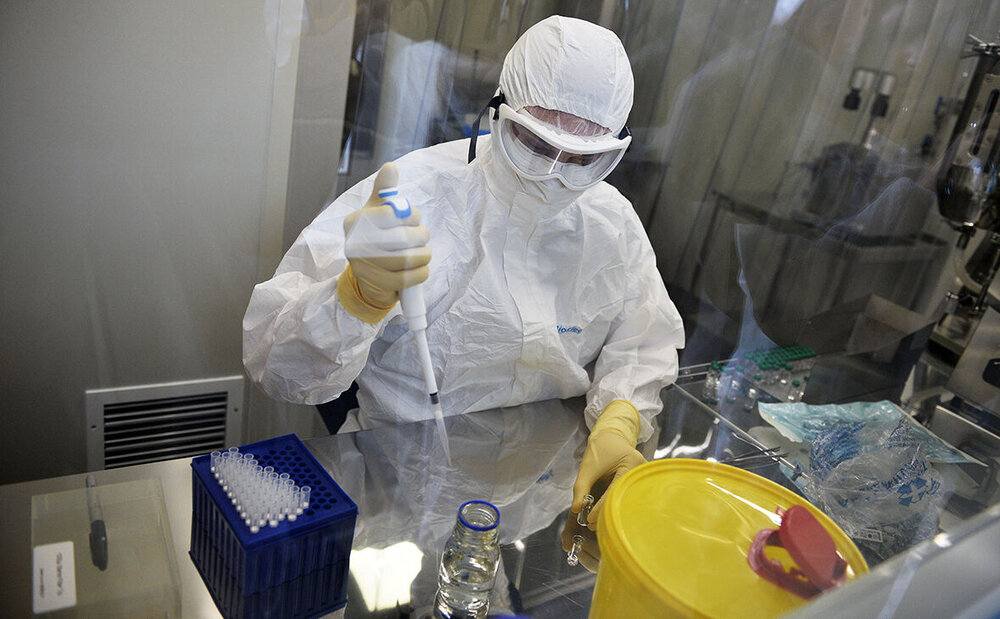Russia welcomes biotechnology, pharmaceutical co-op with Iran

TEHRAN – The director of the Russian Academy of Sciences, Alexander Sergeev, has said that Iran and Russia can cooperate in various fields, including biotechnology, medicine, and other fields of technology, including the ecology of the Caspian Sea.
During an online meeting with Sourena Sattari, the Iranian vice president for science and technology, Sergeev said that joint projects should be defined in prioritized areas that both countries agree upon.
To achieve this, a joint working group should be formed to present their ideas to enhance scientific relations and collaborations, he suggested.
Sattari for his part said that the way of joint scientific and technological cooperation between the two countries, especially in the field of advanced pharmaceutical technologies, is paved.
He considered 2017 as the beginning of joint university projects between the two countries and said that in the first year, 18 joint projects were defined, but since then, the number of joint projects has increased dramatically.
In a recent call, more than 370 projects have been submitted, from which the main priorities are selected to be supported, he highlighted.
Given the current problems caused by the COVID-19 outbreak worldwide, fields of cooperation can be achieved by defining several scientific and technological projects, Sattari said.
Referring to the ability of Iranian knowledge-based companies and research institutes in the field of medicine and vaccines, he said “We are ready to support important and significant projects.”
Sergeev also expressed readiness to cooperate with Iran in various fields of biotechnology, medicine, the ecology of the Caspian Sea, as well as medicine, infectious diseases, and other technological fields.
Ismail Ghaderifar, head of the center for strategic technologies development of the vice presidency of science and technology added that under sanctions in the most difficult conditions, Iran combatted the pandemic and knowledge-based companies could make the country independent. Moreover, they managed to produce pharmaceutical items required by the country's health system.
“Also, the production of medical equipment such as ventilators is one of the honors of knowledge-based companies, which is a vital and important item for ICU patients, which have even reached the export stage,” he said.
Electrospinning is another product made by knowledge-based companies, which can apply a nano-layer on the fibers. Europe which was the only producer of the product refused to transfer the production line to Iran due to sanctions, and the price of each production line was one million euros, he highlighted.
Sourena Sattari, the vice president for science and technology, told the Tehran Times that some of the knowledge-based companies reached a production capacity of more than 200-300 thousand diagnostic kits per day, which surpassed the country’s need for diagnostic kits, and there is a great export potential.
Pointing out that multiplying the production of COVID-19 equipment led to significant measures that led to foreign currency saving for the country, he said “it also helped us cope with problems and not to run out of equipment because no matter how much money we gave, no country had the equipment to sell.”
Mehdi Kashmiri, director for technology and planning at the science ministry, said in July that about 450 knowledge-based companies were active in the country for manufacturing protective equipment and treatment products to fight the coronavirus.
Production of more than one million face masks per day, production of more than 1.5 liters of disinfectants per day, diagnostic kits, non-contact thermometers, protective clothing, ventilator are among the produces manufactured by these companies, he added.
Iranian-made innovative products in the field of diagnosis, screening, and fighting coronavirus were also unveiled to combat the disease, namely, ozone generator, nanotechnology face shields, disinfection gate, and molecular COVID-19 diagnostic kits.
In the press briefing on Saturday, Sima-Sadat Lari confirmed 2,845 new cases of COVID-19 infection, raising the total number of infections to 419,043. She added that 357,632 patients have so far recovered, but 3,893 still remain in critical conditions of the disease.
In the past 24 hours, 166 patients have lost their lives, bringing the total number of deaths to 24,118.
Lari added that so far 3,719,210 COVID-19 tests have been conducted across the country.
She said the high-risk “red” zones include Tehran, Mazandaran, Gilan, Qom, Isfahan, Khorasan Razavi, East Azerbaijan, Kerman, North Khorasan, Semnan, Yazd, Zanjan and Qazvin.
FB/MG
Leave a Comment